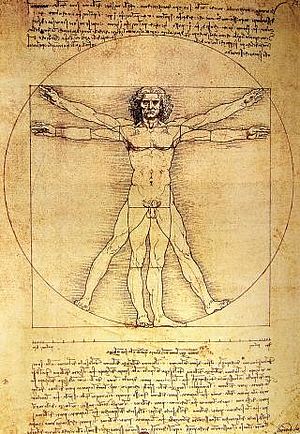B19 Conclusio
This article concludes the following 14 essays and 6 presentations - external publications not included - dealing with the rediscovery of the Christian symbolism of the Western sound system. The essays are arranged in an anti-chronological order, build on each other in content and incorporate the politics of the day, since the present-day reference supports the understanding of the connections.
The path to the topic was unpredictable - otherwise research would not have earned its name. Inevitably, behind a trinitarian depiction on a late medieval keyboard instrument, the great Catholic world view appeared. Within this picture, the theory of harmony occupies an interdenominational place of honor. Harmony is valued worldwide - especially in times of warlike conflict by those who endure suffering.
Prosperity, on the other hand, involves negligence. Why should one strive for something that one already has? Who cares about peace in peace? Even health becomes attractive only in case of illness. But then suddenly it says: "All wishes become small against being healthy." The theory of harmony requires the mind to always think of the given conditions as well as the well-being of the other person - including one's own body (nutrition / sport) and the psyche (recognition and love vs. stimulants and drugs) - and that is not the thing of convenience. The same applies to external relations, to friendships, to harmony in marriage, and to the way nations treat each other. Harmony is therefore much more than a grammar of the art of sound, rather a model-giving principle of compensation and consideration.
Wherever it is lacking, the law of the fittest dominates. Child labor, exploitation, trafficking in human beings, unequal treatment of the sexes, hunger, global warming, ideological conflicts, drug trafficking, pollution, deforestation, factory farming, space debris, overfishing of the oceans, overpopulation, etc. are related to dominance and abuse of power. However, the art of the sound (music) teaches us to give the other person - albeit weak - an equal voice and not to drown it loudly. It also teaches us that important things can also be communicated quietly. In other words, not everything that comes out loud is important - and one has reason to ask why volume is needed, if it is the arguments that matter. To raise the voice in communication is the first form of the use of force, because it is an energy use, which is directed against the interlocutor and makes no contribution to the content. In enhanced form, low-roar (e.g., in interrogation) is a form of mouth-killing, and this in turn is a preform of killing. Jamal Khashoggi and countless others were silenced forever. The use of physical force is the expression of mental powerlessness. Even more: "Who cries, lies," says a proverb. The statement is based on the view that truth does not need such dubious support. As in music, it proves to be synergistic if the interlocutors coordinate in advance and discuss their assignments. In this way one reinforces the effect of the other.
In antiquity, one also spoke of a harmony of the cosmos. It is where nature makes it, for the balance between gravitation and centrifugal force (lat. centrum, middle and fugere, flee), which takes place in complete silence, creates a basic prerequisite for life. Even if the physical connections were not known 2500 years ago, that did not stop people from marveling at the order and the regularity of the starry sky. No wonder, then, that the power of God was seen in the ability to control and balance such powerful forces. Equally divine in nature seemed to be the symmetric vibrational form of the string. The fact that harmony can be expressed through mathematical numerical relationships and evokes feelings - generally the ambivalence of ratio and emotion - is a phenomenon that still haunts mankind today because it describes the characteristics of our existence. One spoke of a spherical harmony because the movement of the string was regarded as the cause of the formation of sound and therefore everything that was in motion - even the stars - had to produce sounds. Pythagoras claimed that he could hear the spheric harmony. The interwoven world of analogy, which brought music, nature, celestial bodies, creators and creation in harmony, goes back to the Pythagoreans in the Western culture and was adopted by the Christians, who called it Catholic (from Greek καθολικός katholikós: all-encompassing).
Harmonia (ancient Greek "Ἁρμονία") is the goddess of harmony in Greek mythology. As the daughter of Ares (god of war) and Aphrodite (goddess of love), she unified conceivably contradictory elements. In Roman mythology, it has a counterpart in the Concordia. Similarly, man's and woman's symmetrical shape - e.g. of the reader - because symmetry can be seen not only as a reflection, but also as propagation in different directions with mutual reference, so that the right hand also knows what the left does. Symmetry can be observed in many places and connects people, nature and art.

Leonardo da Vinci: The Vitruvian Man, ca 1490 Galleria dell'Accademia, Venice
To be able to effect synergetic interaction of the different, only specially structured people are able and willing to do so. For this reason, crusades were called repeatedly, while church teachers preached love of the enemy. Ignorance was and is a constant companion of harmony. Thus, the fifth commandment can ever be forgotten.
Synergeability is not dependent on education and can only be trained and trained with partial success, as it is also influenced by other factors (education, childhood, genes, character). In particular, there is a need to distinguish between the will to realize and the pure knowledge - a discrepancy that even occurs where the accepted doctrine has already been widely used, e.g. sexual abuse by priests. In thousands of such cases theology and education have been unable to curb the physical instincts. Where it succeeded, we know nothing about it. Although celibacy can not be recognized as a monocausal cause, it is still a disregard for the above mentioned. Principles relating to the balance between body and mind, which coexist synergistically and form a coherent whole during life. Life is harmony-dependent. Therefore, not only the body, but also the psyche is harmed in the abuse trap, which in particular pastors have knowledge. In general, it can be seen that not everyone who has been taught ethical foundations is also willing and able to implement what they have learned at any time. The problem is that successes in the classroom are not measurable. Only in hindsight can the damages be quantified.
With the Age of Enlightenment came the end of absolutism for understandable reasons. It followed the blossoming of the sciences, combined with respectable technological advances. However, civilizational progress is only partially recognizable in periodic sections. Therefore, something essential must have fallen by the wayside. There are currently discussions on how to regulate the use of combat robots that have artificial intelligence. These are completely irrational devices that do not value life and only recognize goals in it. If they were reasonably capable, they would have to be able to make the decision to destroy themselves at their own discretion. On the other hand, the robots should, as elsewhere, lose unreasonable work and, due to the self-decision, the bad conscience of their manufacturers.
If one considers the amount of military expenditure - $ 1.739 trillion worldwide plus the annual damage caused plus 68.5 million displaced persons and refugees in 2018 - the ethical-economic catastrophe of strategic thinking becomes apparent. To reject criticism as a lack of realism means accepting the inefficiency of Homo sapiens as a fact and giving up any hope of doing anything about it - and this view is wrong because of volunteering, donations, hospitality, helpfulness, love and wisdom in all cultures and educational layers can be found. It is also undeniable that the globally networked sciences have contributed much to the well-being of the general public.
It is the sad sense of war that people should suffer and die to make life for the victors even better - whatever they understand it - and still the sufferers will dream of harmony and peace. Conversely, such reverie is something for losers. Relentlessly, the society deals with them. The arts, which exemplify and convey harmony, are considered to be "without bread" - ig. not worth eating. Whoever needs them and needs emotional petting is considered weak and unfit to face the realities of life: a burden on society.
The manner of dealing with the strongest, as shown, tends to be disrespectful. Therefore, the arts are instrumentalized for the purpose of prestige and henceforth pay homage to their owners by showing off their assets, education and beauty. Art mutates into a luxury item and investment. The term esteem gets new meaning - e.g. 450.3 million US dollars for the Salvator mundi of Leonardo da Vinci.

Salvator mudi, Leonardo da Vinci (attributed), around 1500 Louvre Abu Dhabi
Again, one could speak of petting, of psychostimulants or of self-sufficiency with appreciation and admiration. If this were withdrawn, it will be critical, because the self-sufficient lost his strength and would do everything to get back his power. Dictators go over corpses for this because a psychologically sore point is touched. Afflicted existences on both sides.
The Corresponding Society of Musical Sciences, to which Johann Sebastian Bach belonged, was particularly concerned with the ethical content of harmony. The statutes therefore demanded respectful and polite manners. The term reason was unthinkable without harmony. This is probably still to be seen in the context of the traumas of the Thirty Years' War - therefore the Protestant peace churches that emerged during this period have such unusually rich artistic equipment with an emphasis on music. We observe a synergy of the arts. Behind it lies the pure yearning for salvation in everlasting peace.

Gnadenkirche in Jelenia Góra (Hirschberg) with inclusion of the organ in the altar structure and the reference to the immaterial presence of light and sound as gifts of God: "I am the light of the world"; "Musica Donum Dei" - a baroque version of what the gothic mass and rosette rosettes have expressed centuries before.
In the time of the oncoming enlightenment, the biblical text Philippians 4: 7 in the translation of Martin Luther had special significance: "And the peace of God, which is higher than all reason, keep your hearts and minds in Christ Jesus." Harmony and peace can be equated, since music has been considered from time immemorial as the gift of God, to which the symbolism of the tone system makes special attention - with the consonance of prim and octave as alpha and omega - in the combination of two opposites: the beginning with the end. Peace, too, does not arise otherwise than through the union of the formerly opposing one another. Seen in this way, the expression "higher than all reason" expresses that insight does not benefit us as long as it is not connected with the execution.
Today, with only a few witnesses of the last World War alive - the deceased have taken their experiences to the grave - the doctrine of the synergetic interaction of forces is threefold in criticism, because their location is between the fronts of polarization, be it from left or right. In addition, prudence and deliberate action are seen as unjustified features (s.o.) of an educational elite relieved of the worries of the world, against which populists storm. Due to the lack of arguments, only polemics and defamation remain. Therefore, the word "philosophical" has long since become synonymous with incomprehensibility, remote reality and uselessness. If nothing else helps, loud threats, then violence, are the last resort.
We experience "the spectacle of a degeneration of values and beliefs that once seemed embodied in the idea of Europe" (Frank Schirrmacher). Here it is important to investigate the causes of social tensions simultaneously from several perspectives. Regarding the subject of harmony, unfortunately, access to the public has been made more difficult:
The Pontifical Consiglio della Cultura informed the author that it was not one of the tasks of the Consiglio to endorse scientific theories - after the Pontificio Istituto di Musica Sacra made a recommendation - and Benedict XVI had publicly expressed the spiritual significance of western music ,
The Libreria Editrice Vaticana withdrew the promise of a multilingual publication without substantive comments.
The Catholic University of Heiligenkreuz suggested drafting a habilitation dissertation and submitting the results for commercial purposes.
The requested media rejected the topic "due to lack of space" - or due to the "heated-up political times".
The sciences avoid polydisciplinary research fields due to specialization.
Publishers are guided by scientific practices and the interest of the market.
The Federal College for Musical Instrument Making and the Union of European Piano Associations are not interested in the cultural history of their own profession.
The sum of such feedback combined with the observation of day-to-day politics highlights the current "Zeitgeist", which is more in line with the strategic search for monetary benefits and polarization, as heated minds attract attention, which in turn generates revenue. The author would like to err with this assessment.
Harmony, on the other hand, is a place that is found by insight, wisdom and self-control (non-violence) - in an equal-synergetic togetherness. Democracy comes at times pretty close to this ideal. An aphorism informs about the alternative way of reaching an understanding: "You become wise from damage - but too late." After the collapse of the Morandi Motorway Bridge in Genoa on August 14, 2018, everyone suddenly knew what had to be done beforehand.
Nature reacts differently, has regenerative power, but needs an understanding way of communicating, so as not to show its hostile side. Creeping damage can be ignored for a while and far away does not seem threatening. Not all people have the same perception in this regard and primarily other interests. The variants of social action therefore range from a rapid change of course with a redefinition of goals to self-extermination, because there can be no victors over nature. Some changes, such as the decline in species diversity, are already irreversible. For the remainder, two tasks are distinguishable: on the one hand, to minimize the consequences of the previous behavior and, on the other, to tackle the cause with oneself. In this context, the theory of harmony gives to the proverb: "Who does not want to hear must feel!" new content and new weighting.
© 2018 Aurelius Belz

